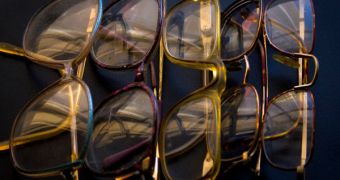For over twenty years, scientists and patients in Germany have been pooling resources together to secure government fundings for advanced research into the field of artificial retina prosthetics. And advancements have been made at an ever-increasing rate. While other countries poured money in technology for space exploration and weapons, the European nation funded research into advancements that would benefit the people. At the international symposium “Artificial Vision,” which will take place in Bonn on 19 September 2009, three out of four teams presenting innovations are German.
Organized by the Retina Implant Foundation (RIF) and the Pro Retina Foundation for the Prevention of Blindness (PRFPB), the meeting is set to showcase major advancements in this line of study that will have significant implications on the quality of life of patients suffering from blindness or other forms of visual impairments. They could become able to regain mobility and lead an independent life in the near future, without having to be under constant monitoring. They could also soon be able to read again, and to recognize familiar faces, AlphaGalileo reports.
“We’re in the final run-up. The final studies prior to market launch have begun or are set to begin,” expert Peter Walter says. He is a professor at the University Eye Clinic, in Aachen, Germany, and also the scientific director of the Artificial Vision symposium. Recent investigations have proven that artificial prosthetics can allow people to differentiate light from darkness, recognize large objects, and even read letters that are at least eight centimeters tall. The studies Walter talked about are designed to test the long-term resistance of retina implants, as well as their reliability in extensive use.
“Compared with the study we conducted ten years ago, patients now have a much clearer idea [of what they expect from retina prostheses]. You can, so to speak, go blind without worrying about it, because you know that the systems will soon be ready and we therefore have an option,” Retina Implant Foundation Chairwoman Helma Gusseck adds. She herself suffers from a degenerative retina disorder known as Retinitis pigmentosa, which means that she can now only distinguish between light and dark.
But the main goal of retina research is to develop technology that would eventually allow patients to distinguish shapes. “To do this will require a retina prosthesis capable of learning and that is able to produce a kind of melody of impulses that can be recognized by the brain and classified as a particular shape, like a cup,” University of Bonn neuro-informatics specialist Professor Rolf Eckmiller shares.

 14 DAY TRIAL //
14 DAY TRIAL //